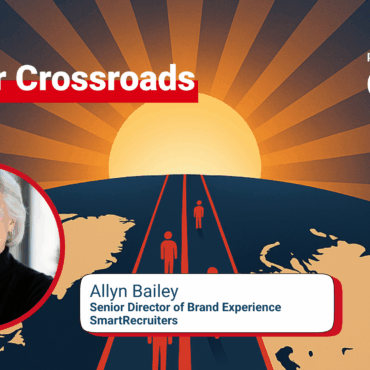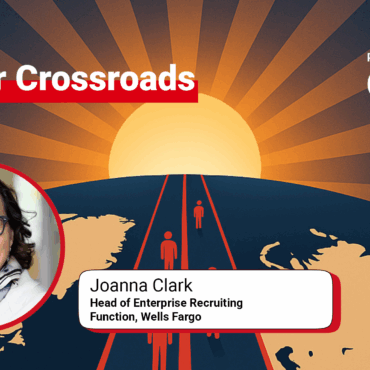
Career Crossroads: A New Series from the CXR Team
How does a criminal justice grad become a global TA leader? Joanna Clark shares the bold moves and big lessons from her 30-year recruiting journey.
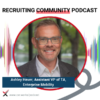 play_arrow
play_arrow
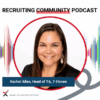 play_arrow
play_arrow
Transforming High-Volume Hiring at 7-Eleven Cami Grace
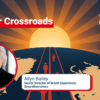 play_arrow
play_arrow
From Early Childhood to Talent Tech: Allyn Bailey’s Career Crossroads Cami Grace
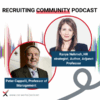 play_arrow
play_arrow
In Praise of the Office Cami Grace
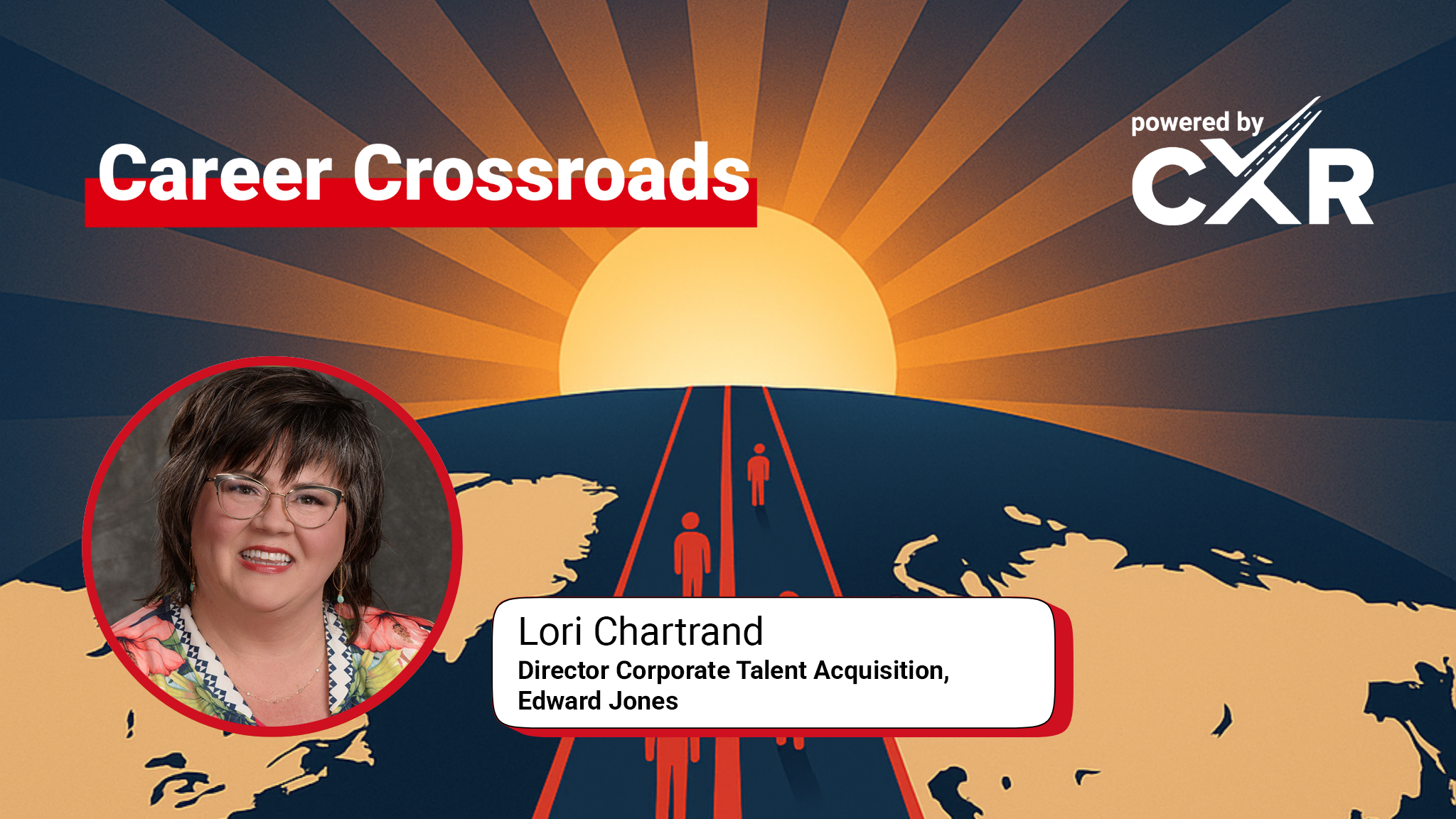
Featured Guests:
Lori Chartrand – Head of the Talent Office, Edward Jones
Hosts:
Chris Hoyt – President, CareerXroads
Gerry Crispin – Co-Founder, CareerXroads
Episode Overview:
In this Career Crossroads edition of the CXR Recruiting Community podcast, Gerry Crispin talks with Lori Chartrand about her nontraditional path into talent acquisition and how a curiosity-driven mindset shaped her career. From healthcare operations to staffing and ultimately to corporate recruiting leadership at Edward Jones, Lori shares how coaching, adaptability, and listening have been key themes throughout her professional journey.
Key Topics:
Transition from healthcare operations into recruiting
Early experiences in staffing and discovering a passion for hiring
Moving from individual contributor to leadership at Edward Jones
Shifts in talent acquisition leadership and growing complexity of the role
Importance of coaching and mentorship in career development
Adapting to change, including emerging tech and AI in recruiting
Advice for early-career professionals entering TA today
Notable Quotes:
“My happiest weeks were the ones where I was interviewing and placing talent.” – Lori Chartrand
“TA is more complex than ever… it’s not just about filling roles.” – Lori Chartrand
“If you see something you want, step in. Offer to help. Go after it.” – Lori Chartrand
“Hindsight is 20/20. Learn—don’t dwell.” – Lori Chartrand
Takeaways:
Lori Chartrand’s career story is a testament to the power of self-awareness, curiosity, and intentional growth. Her emphasis on flexibility, feedback, and coaching reveals how evolving with the TA landscape—and leading others to do the same—can create lasting impact in any organization.
Want more conversations like this?
Subscribe to the CXR podcast and explore how top talent leaders are shaping the future of recruiting. Learn more about the CareerXroads community at cxr.works.
Chris Hoyt: Welcome to another CareerXroads CXR podcast—Recruiting Community. We’re excited to do this. We’ve been at it for a number of years and really like to think that we’re bringing insightful conversations to you from leaders, all in the form of an easy conversation.
These are usually about 20 to 30 minutes long, so we’re not going to take up your entire morning or afternoon, but we are excited to have you like and subscribe, and just come back to check out the rest of the interviews we’ve done. You can see more at cxr.works/podcast.
Now today is a little bit unusual for us. We’re working on a special series, Gerry, that you dreamed up and that we lovingly named Career Crossroads—two words, not the same as the company name, CareerXroads. You want to tell us a little bit about that?
Gerry Crispin: Yeah, so instead of CXR, it’s more about “careers at a crossroads,” if you will. I find this fascinating because it really hearkens back to the origin story of CareerXroads—when we first started thinking about the decision process that employers make and that candidates make.
Most of our history has been around the employer side, but now we’re trying to look at what the candidates—who we’ve known for many years—have done over and over again. How did they choose to go from one place to another? What did they learn about making good career decisions? I’m loving the insights that come out of these conversations.
Chris Hoyt: I love the spin you’ve put on this. We typically work with employers, heads of TA leading large functions—and now you’ve switched the lens so that they are the candidates in these conversations. I just think it’s great. You’re talking to Lori today?
Gerry Crispin: Yeah, Lori Chartrand, who’s currently at Edward Jones. A fascinating background—she was in ops, and as she started hiring people, she realized, “Wow, this is pretty cool.” So she got pulled into recruiting in a totally different way. I really enjoy how she’s managed her career over time and how she’s thinking about her future, including pivoting toward coaching. It’s just an interesting evolution.
Chris Hoyt: Yeah, Lori’s been on the show. We had her in the “Unleashed” series and she’s always a kick. I’m really looking forward to this. I hope everybody enjoys it.
Announcer: Welcome to the Recruiting Community Podcast, the go-to channel for talent acquisition leaders and practitioners. This show is brought to you by CXR, a trusted community connecting the best minds in the industry to explore topics like attracting, engaging, and retaining top talent. Hosted by Chris Hoyt and Gerry Crispin. We are thrilled to have you join the conversation.
Gerry Crispin: I’m very excited. I’m particularly excited to be with Lori Chartrand today, who heads up Edward Jones’ Talent Office at their home office. Fabulous. You’ve hosted us in St. Louis—it was lovely being at your headquarters.
So, this series is called Career Crossroads. About 30 years ago, when CareerXroads first occurred to me, I saw it as a place where employers and candidates make decisions about jobs and careers. Over the years, CXR has mostly studied employer policies and practices, but I’ve long thought it’s just as important to consider how candidates make those decisions—from their earliest job to retirement.
So, here’s my first question: How the heck did you get into this crazy business called recruiting? I noticed that about 24 years ago you were a recruiting coordinator. Was that your first time? How did you get there?
Lori Chartrand: Yeah, it’s funny because I always ask people, “How did you fall into recruiting?” Most folks don’t say, “I want to be a recruiter when I grow up.”
For me, it was about paying attention to what I enjoyed. I was in healthcare as an operations coordinator, and I found myself wanting to help with hiring—interviewing aides when the clinical staff wasn’t available. Then, at one point, I made a mid-career shift and went into staffing. I was open to anything, and that job had both sales and recruiting responsibilities.
I realized my happiest weeks were the ones where I was interviewing, placing talent, and helping people find assignments. That’s what really pulled me into recruiting. From there, I wondered what it would be like to recruit for just one company instead of learning about every company in St. Louis.
Gerry Crispin: It seems like a lot of people end up in recruiting because someone said, “Why not try this?” But what cements it is discovering how engaging the work is—and it sounds like that was your experience, too.
Lori Chartrand: Yes, I’m a very inquisitive person. I’m also an introvert by nature, but I love one-on-one settings. I enjoy asking people questions like, “Why did you do this?” and helping them highlight their skills.
If someone had a lousy resume, I’d say, “Hey, have you thought about adding this or showcasing that?” It was all about helping people. That’s what really drew me in.
Gerry Crispin: How did you go from that first job to thinking about recruiting as a long-term career? What drove you to leave or look elsewhere?
Lori Chartrand: I realized the sales part wasn’t my favorite. I built great skills in that role—led underperforming areas, managed challenging programs—but I knew I wanted to focus solely on talent acquisition.
That’s when I transitioned into corporate recruiting. I started at Edward Jones as an individual contributor, but within three years, I realized I missed people leadership. I missed helping other recruiters grow and get better at what they do. That desire to lead and coach brought me back into leadership.
Gerry Crispin: You’ve been at Edward Jones for a while. What brought you there?
Lori Chartrand: Honestly, it was the company’s reputation in St. Louis. We had a local TA networking group, and I got to know some folks from Edward Jones. I liked how they talked about their work, their candidates—it felt like a culture of caring.
The focus on development and internal mobility also attracted me. I’ve had the opportunity to work in several different parts of TA here, which has been great.
Gerry Crispin: From where you sit now as a leader, and having seen leaders in other companies, how has leadership changed? What are the challenges?
Lori Chartrand: Great question. I think in the past, it felt very process-focused. But now, the stakeholder network is much bigger. More people influence your work—digital teams, tech systems, cross-functional partners.
TA is more complex than ever. It’s not just about filling roles; it’s about creating better onboarding experiences, integrating systems, and enhancing the candidate experience. There’s also coaching hiring leaders—and now we have to worry about things like deep fakes in interviews! Is this even a real human?
So yeah, the complexity has grown exponentially.
Gerry Crispin: That complexity just keeps growing. It reminds me of an old cartoon—a classroom with a recorder at the lectern delivering the lecture, and all the students were just tape recorders recording it. No humans in the room.
Lori Chartrand: Right! Like a mirror of a mirror. That’s what it feels like sometimes. Agents interviewing other agents—I can see that becoming a thing.
Gerry Crispin: I noticed you’ve also made a concerted effort to become a coach. That’s a big upskilling move. What led you there?
Lori Chartrand: I know it sounds cheesy, but I’ve always had this innate desire to lead—advocating for others, helping them grow, speaking up in their absence.
So I paid attention to what I was missing as an IC and thought about how coaching and leadership could fill that. I looked to mentors in both my personal and professional networks and asked, “What are they doing well? What can I learn from them?”
It came down to observation and asking myself, “Where are the gaps in my own skills? And how do I start filling them?”
Gerry Crispin: In your vision for the future, besides coaching, is there anything else you see on the horizon?
Lori Chartrand: Coaching will always be part of what I do, but I want to be an even better coach—a more futuristic one.
I’m open to all of it: AI interviewing AI, new tech, new ways of thinking. I don’t want to limit myself. I want to keep learning, keep sharing, and stay open to evolution. That’s key.
Gerry Crispin: I love that. We have choices about how we embrace uncertainty. It can give us anxiety, but if we stay curious and open to new things, we can make it work.
Final question: For someone who’s a “Lori of 25 years ago”—but starting out today—what advice would you give them?
Lori Chartrand: First, be inquisitive. Stay curious, even about things outside your immediate scope. That gives you context and keeps you future-ready.
Second, be flexible. Our brains are wired to move away from threats, but sometimes we need to lean into discomfort. Change is constant. Learn how to manage through it.
Third, don’t wait. If you see something you want, step in. Offer to help. Go after it.
And finally, be open to feedback. Listen for patterns. If you hear the same thing more than once, maybe there’s something there worth paying attention to.
Gerry Crispin: I love that. Act—and then be willing to learn from the consequences.
Lori Chartrand: I tell my team all the time: “Hindsight is 20/20. Learn—don’t dwell. What did we learn, and how are we going to do better next time?”
Gerry Crispin: That’s a great way to end. Thank you, Lori. It’s been wonderful learning more about your journey.
Lori Chartrand: Thank you so much, and thanks to CareerXroads and all the amazing recruiters and leaders I’ve met along the way. It’s crazy how time flies.
Gerry Crispin: Gotta love it.
Announcer: Thanks for listening to the Recruiting Community Podcast, where talent acquisition leaders connect, learn, and grow together. Be sure to visit cxr.works/podcast to explore past episodes, see what’s coming up next, and find out how you can join the conversation.
Whether you’ve got insights to share or want to be a guest on the show, we’d love to hear from you. To learn more about becoming a member of the CXR community, visit www.cxr.works. We’ll catch you in the next episode.
Tagged as: coaching, Leadership, Career Crossroads, Operations, Talent Acquisition, AI in recruiting.

How does a criminal justice grad become a global TA leader? Joanna Clark shares the bold moves and big lessons from her 30-year recruiting journey.
